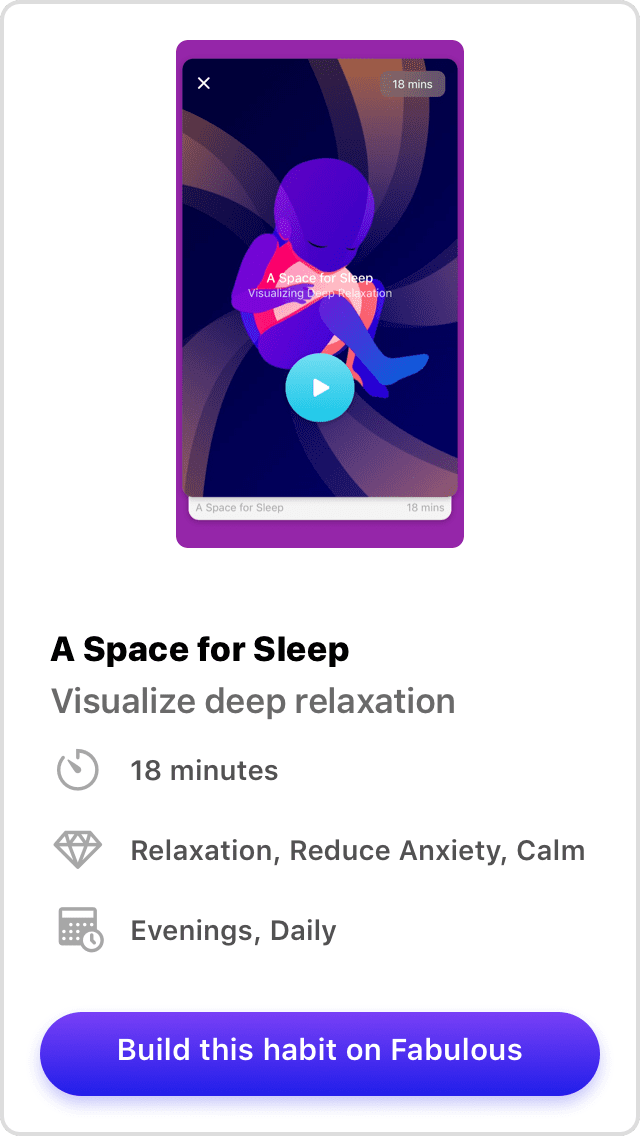The health risks that come with not getting enough sleep are well-documented. Sleep is our body’s opportunity to rest and repair itself and not having enough time to do that can make us stressed and sick. But what about the other end of the spectrum? Can you sleep too much?
The answer is yes, absolutely. Sleeping too much can lead to just as many health problems as not sleeping enough. Like anything else, sleep is best in moderation.
But how much sleep is too much? What does excessive sleeping do to your body? And how can we ensure we’re getting enough good sleep to prevent oversleeping? We discuss all this and more in today’s Fabulous Uncovers.
How Much is Too Much?
You’ve probably heard that eight hours is the recommended amount of sleep we should be getting each night. That’s still true, but recent research from the National Sleep Foundation has broadened the ideal to anywhere between seven and nine hours for most healthy adults.
Note, however, that we say most healthy adults. Sleep is a highly individualized need and while seven to nine hours is considered normal for most, it may not be for you. A substantial portion of the population are considered “long sleepers,” or people who require more than 9 hours of sleep each night to function. Others still get by perfectly fine on fewer than seven hours.
This number also assumes that your sleep schedule is unaffected by health conditions or life circumstances. If you spent a whole week pulling all-nighters while cramming for a final exam, it’s not so surprising that you’d need extra sleep over the weekend!
However, if you’re consistently sleeping over 10 hours a night, you may want to see a doctor right away.
The Dangers of Excessive Sleeping
Though it may sound contradictory, oversleeping might actually make you more tired! Sleeping too much can mess with your circadian rhythm and make it harder for you to sleep when you actually want to. That’s only the beginning of our excessive sleeping woes.
Here’s just a sampling of the health conditions that can be caused or exacerbated by sleeping too much:
- Type 2 diabetes
- Heart disease
- Obesity
- Depression
- Stroke
- Pain and inflammation
- Cognitive impairment
Oversleeping can also be the effect of underlying health conditions like sleep apnea, hypothyroidism, or any of the conditions listed above.
Generally speaking, people who sleep too much have a lower life expectancy than those who get enough sleep. One of the biggest reasons for this is that excessive sleepers are more sedentary than those who don’t oversleep. Being motionless for extended periods of time means you’re burning fewer calories. It also means you aren’t moving your body enough to keep it healthy and strong. Those two things combined can lead to catastrophic health problems and even premature death.
How to Fix Your Sleep Schedule
Our Fabulous Sphere journey “A Better Night’s Sleep” can help you revamp your sleep schedule so that you get a good, restful 40 winks every night. If you’re not a Sphere member, here’s a summary of what you can do to improve the quality of your sleep.
The most important thing you can do to fix your sleep schedule is to be sure to go to bed and wake up at the same time every night! That means no more late nights or sleeping in on the weekends. Once in a while is fine but your body needs consistency to thrive.
Pick a bedtime and waking time that works best for you. If you’re not sure how many hours of sleep you personally need, aim for 8. Spend the next four weeks going to bed and waking up at your predetermined time (no cheating!) and see how you feel. Keep a journal if that helps you. Check in with yourself after two weeks and make adjustments as necessary.
Here are some other things you can do:
- Avoid technology and anything that emits blue light for at least an hour before bed.
- Avoid excessive naps, especially after 4PM.
- Keep your alarm clock on the other side of your room to force you out of bed in the morning.
- Drink water immediately upon waking! Our bodies are severely dehydrated when we wake up and being dehydrated makes us groggy!
- Keep your room extremely dark at night and extremely bright in the morning. Your circadian rhythm takes cues from how much light your body’s receiving throughout the day.
- Save bad thoughts for daytime. Use the moments before falling asleep to think about things you’re grateful for or something you’re looking forward to doing the next day.
Sweet dreams!
Have trouble relaxing before bed? Try our new “A Space for Sleep” meditation. You can find it in the meditation section of the Fabulous app’s Make Me Fabulous menu.




